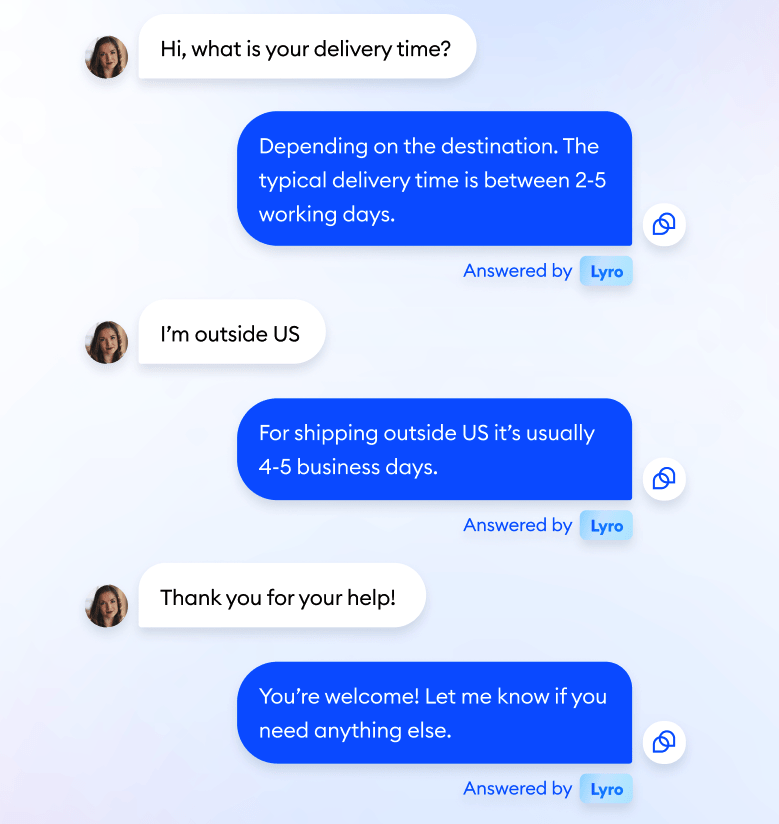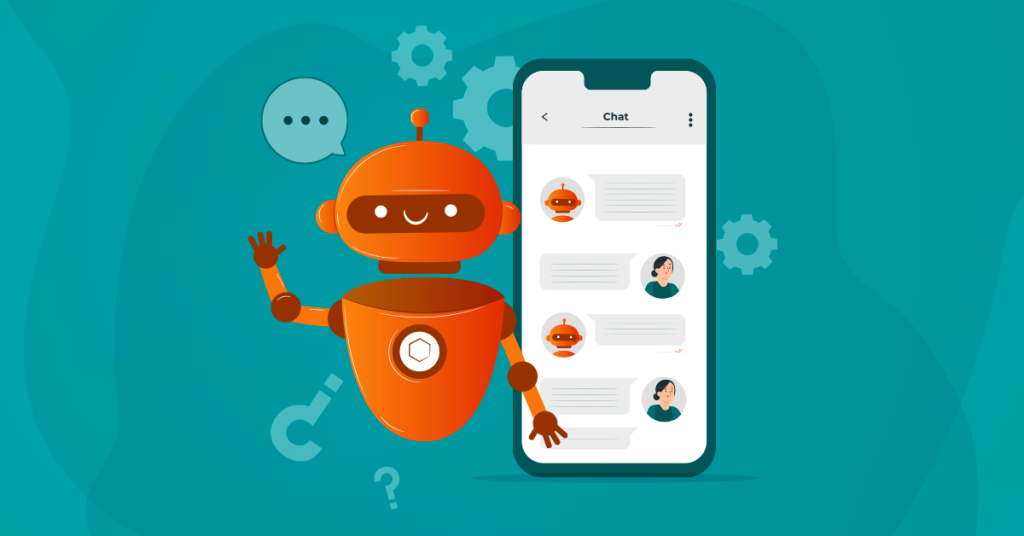AI-powered chatbots have taken the digital marketing industry by storm. They provide quick responses, collect data, and enhance the customer’s overall experience. However, while they offer valuable benefits, they also come with challenges that marketers should consider.
The Pros of AI Chatbots in Digital Marketing
One major advantage of chatbots is their 24/7 availability, allowing customers to receive support at any time of day.1 This increases customer satisfaction by immediately addressing any issues that a customer may face. Chatbots can handle multiple interactions simultaneously, which offers a level of productivity that human agents cannot match.2 AI chatbots are also useful in digital marketing for lead generation, as they collect information and help qualify potential customers by asking questions about their needs and preferences.3 This data allows businesses to expand their customer base by optimizing their marketing efforts.4 Chatbots can also provide personalized recommendations by analyzing user behavior, helping customers quickly discover products tailored to their needs, which can improve their shopping experience and, consequently, boost conversion rates.5

The Cons of AI Chatbots in Digital Marketing
Despite these benefits, chatbots have limitations. A major drawback is the lack of human touch.6 While chatbots can handle routine inquiries efficiently, AI chatbots can sometimes struggle with complex questions. This can reduce efficiency, as a human may need to resolve the issue. Customers may perceive automated responses as impersonal or inapplicable to their situation, which can frustrate users seeking personalized assistance.7 This can negatively impact the brand’s reputation as a result. Additionally, privacy concerns are significant, as chatbots collect and store data, requiring careful management to protect customer trust and to maintain compliance with data regulations.8 High setup costs for advanced AI chatbots can also pose as a barrier, especially for smaller businesses.9
Striking a Balance
To maximize the benefits of AI-powered chatbots, businesses must find the right balance between automation and human interaction. Chatbots should be used for tasks that are repetitive or simple, such as answering frequently asked questions (FAQs), providing product recommendations, and gathering lead information.10 However, for more complex issues or detailed situations, human agents should take over.11 By strategically rolling out chatbots alongside human support, businesses can create a seamless customer experience that blends efficiency with personalized service, while reducing costs in the long run.
AI-powered chatbots are undoubtedly a game-changer in digital marketing, offering remarkable opportunities for customer engagement, lead generation, and personalized experiences. However, businesses must be aware of the limitations associated with using chatbots, as they can potentially steer customers away. When using chatbots effectively, brands can harness the best of both worlds in order to improve customer engagement and drive significant results.
- Dimitrakis, T. (2021). Chatbot Marketing: The 24/7 Marketing Solution. NoGood.io.
https://nogood.io/2021/12/10/chatbot-marketing/ ↩︎ - IBM. (Date unknown). What is chatbot marketing? IBM. https://www.ibm.com/topics/chatbot-marketing#:~:text=Chatbot%20marketing%20is%20a%20digital,promote%20products%2C%20services%20or%20brands. ↩︎
- Unknown Author. (2024). Why Chatbots are a Must-Have for Lead Generation. Digital Success.
https://www.digitalsuccess.us/blog/why-chatbots-are-a-must-have-for-lead-generation.html ↩︎ - Magalhães, R. (2024). How to Build a Lead Generation Chatbot. Landbot.io https://landbot.io/blog/lead-generation-chatbot-tutorial#:~:text=A%20lead%20generation%20chatbot%20is,offer%20a%20number%20of%20advantages. ↩︎
- Unknown Author. (2024). Using AI and Machine Learning for Personalized Recommendations in Digital Marketing Content. BuzzBoard. https://www.buzzboard.ai/using-ai-and-machine-learning-for-personalized-recommendations-in-digital-marketing-content/ ↩︎
- Unknown Author. (2024). Advantages and Disadvantages of Artificial Intelligence in Digital Marketing. Dentsu. https://www.dentsu.com/id/en/insights/our-blog/artificial-intelligence-in-digital-marketing#:~:text=Lack%20of%20Human%20Touch&text=AI%20may%20be%20able%20to,AI%20for%20various%20automated%20tasks. ↩︎
- Fanaras, L. (2024). Here’s What AI Can’t Replicate In Marketing. Millennium Agency. https://mill.agency/digital/ai-cant-replicate-marketing/ ↩︎
- Walker, M. (2024). Chatbots and Data Privacy: Ensuring Compliance in the Age of AI. SmythOS. https://smythos.com/artificial-intelligence/chatbots/chatbots-and-data-privacy/ ↩︎
- Uramis, P. (2024). Chatbot Pricing: How Much Does a Chatbot Cost. LiveChatAI. https://livechatai.com/blog/how-much-does-a-chatbot-cost#:~:text=Broadly%20speaking%2C%20the%20price%20of,as%20you%20plan%20your%20investment. ↩︎
- Dunham, J. (2024). FAQ Chatbot: A Comprehensive Tool for Improving User Experience. Chatbot. https://www.chatbot.com/blog/faq-chatbot/ ↩︎
- Kugler, K. (2024). Improving Customer Retention With AI Chatbots. TheThreeMarketers. https://www.the3marketers.com/improving-customer-retention-with-ai-chatbots/ ↩︎
